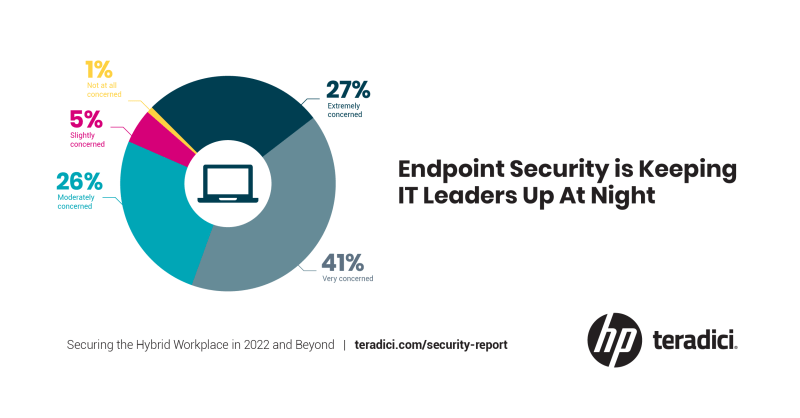Want smarter insights in your inbox? Sign up for our weekly newsletters to get only what matters to enterprise AI, data, and security leaders. Subscribe Now
According to a new report by Teradici, 78% of respondents across a range of industries are currently implementing zero trust or are planning to do so in the next two years. VPN is expected to be replaced by remote access and zero trust to best protect corporate assets as hybrid workforces become the norm.
When organizations abruptly shifted to remote work during the COVID-19 pandemic, they had to scale their network and security capabilities quickly. This meant snap decisions for many companies, deploying more of what they were already using while likely taking some shortcuts that delayed optimizing security and user experience for another day.
Teradici’s new report identified the security challenges that were uncovered as companies moved to remote work and how they’re planning to increase security as hybrid work matures.
Virtually all respondents (99%) reported their companies will have a hybrid workforce, and nearly 40% expect more than half of their workforce to operate remotely at least twice a week post-pandemic.
AI Scaling Hits Its Limits
Power caps, rising token costs, and inference delays are reshaping enterprise AI. Join our exclusive salon to discover how top teams are:
- Turning energy into a strategic advantage
- Architecting efficient inference for real throughput gains
- Unlocking competitive ROI with sustainable AI systems
Secure your spot to stay ahead: https://bit.ly/4mwGngO
Only 10% of employees are predominantly using corporate-owned devices at-home, while the rest are using a mix of bring your own device (BYOD) and corporate devices (42%), or predominantly BYOD (48%). Seventy-four percent of respondents report they expect use of BYOD to increase in the near term.
As a result, endpoint security is keeping IT leaders up at night. Ninety-four percent indicated their companies are concerned about the security of corporate data exposed via home-based devices, and 98% are concerned about security and/or data integrity as a result of employees commuting with endpoint devices.
Relying on VPNs has been a challenge for many during the shift to hybrid work, and companies are turning to remote access and zero trust. Other respondents are currently using remote desktop technology or desktop-as-a-service (DaaS; 55%) rather than VPNs (41%) as their primary method of mitigating corporate data exposure.
Looking ahead, the need for both user and device authentication, as well as continuous authorization of devices, will be critical to an end-to-end zero-trust posture.
The report is based on a survey of more than 8,300 respondents across multiple industries.
Read the full report from Teradici.


